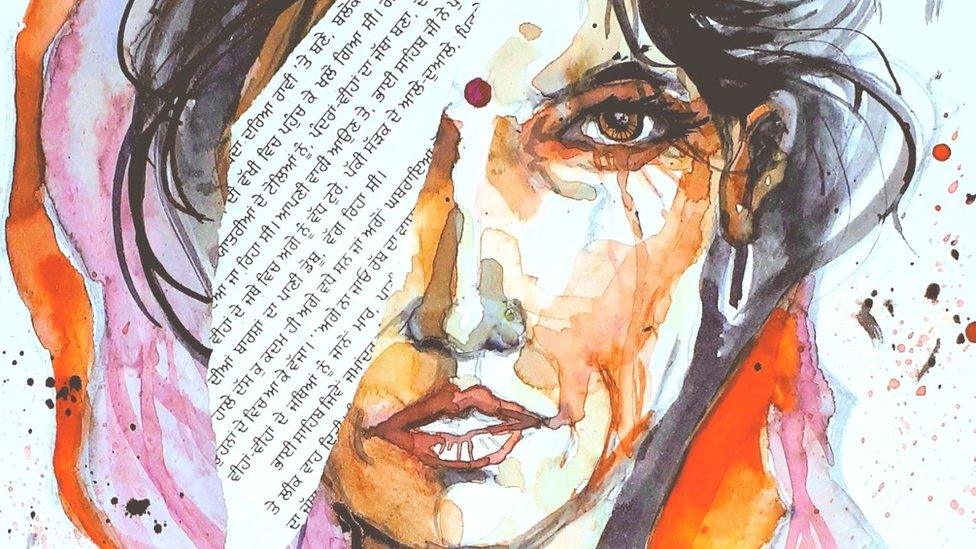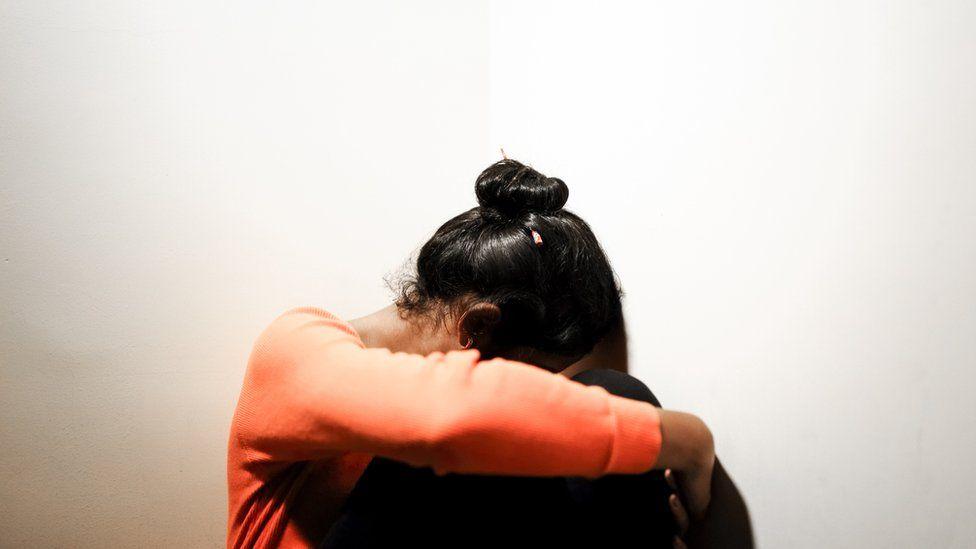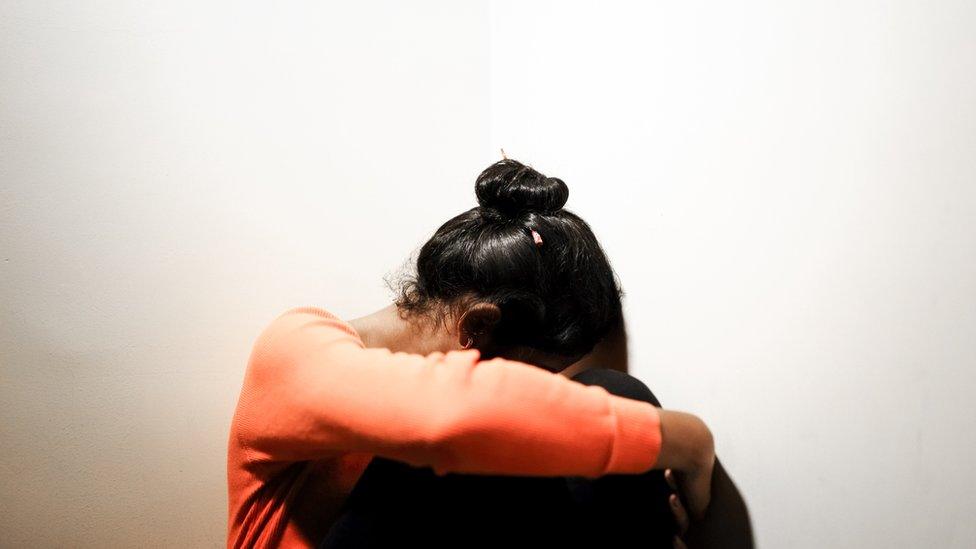'Rampant' violence against Sikh women highlighted in report
- Published

More than a third of respondents said they had experienced sexual abuse as a child
"Rampant, hidden" violence against women and girls from the Sikh community has been highlighted in a new report.
Of the 674 people who responded to the survey, 70% saw themselves as survivors of domestic abuse.
Only a third of victims had previously disclosed incidents, the "stark" report by Sikh Women's Aid found.
There was an "urgent need" to stop their "casual victimisation," said the Victims Commissioner for England and Wales Dame Vera Baird.
One in seven of the respondents said they had experienced sexual abuse as a child, which was a "shocking statistic," said report co-author Sahdaish Pall from the Birmingham-based organisation.
One victim described being sexually abused at the age of seven by a grandfather, another was raped by "multiple family members."
A third described being groomed by an older cousin: "He wanted to be a good husband to his future wife and practise on me."
The prevalence of emotional abuse was also highlighted with one contributor describing her marriage to an Indian man as a "lifetime of slavery and mental abuse."
The report said many common themes were highlighted by respondents:
Lack of awareness on long-lasting impact abuse has
Alcohol and drink as contributing factors
Emotional and psychological abuse being commonplace
Lack of belief 'in the system'
Police failings and 'not being believed'
Support services not responding
Homophobia and lack of support for the LGBTQ Sikh community

'He tried to stop me going to work'

Lack of information is allowing perpetrators of abuse to thrive, the report said
Rani - not her real name - was in an abusive marriage, she said: "It started after I had my first child. It was a physical attack. I went to the police, it went to court and he was cautioned.
"And then he changed tactics - it became mental, verbal, derogatory. I was blind to it because you don't realise this is also abuse.
"He tried to stop me from going to work. He didn't like me going to visit my family or friends. Anything I wanted to do, there was always barriers.
"Then it got worse and worse as his family intervened. I was constantly put down in front of my kids, mind games, lies. You're fighting to live, you're fighting to be yourself. I didn't realise I was in a constant state of fight or flight - constantly on edge wondering 'what will he say to this, what will he do if I did this'.
"At first I told my mum. There's generational thinking especially in the Asian community - because they experienced the same and it was the norm back then, their response is 'oh men do that, but he'll change over time', and probably their parents said to them they had to sit there and take it, they had no choice. So, you're conditioned to think it's something you have to tolerate.
"The impact of this on men can go both ways - some men will see their mothers or sisters go through it and they will never do the same to their partner. Others will think 'its normal behaviour, I'm the alpha male, you're under my foot, I have the power and control'.
"And they see you tolerating their abuse as weakness, which reinforces their power. It is all about power and control at the end of the day."

Many Sikh men are seen as "pillars of the community, so not being believed is an issue that women face," said Ms Pall.
One contributor wrote that because her husband had a beard and turban he was "automatically seen by our community as saintly," whereas he had "beaten, abused and starved me and my children."
There was also a "normalisation" of abuse by men, Ms Pall added, with women being told by their own mothers or mothers-in-law, "I had it worse" so to "put up with it".
"It feels that abuse is endemic in our culture, it's almost part of the culture, to be expected," wrote one respondent.
Appropriately funding awareness campaigns, backed by the government, are among the recommendations of the report.

The report is based on an anonymous survey circulated amongst the Sikh community with 674 respondents including some men
"Currently there is little to no targeted research on how the Sikh community is impacted on abuse of any kind," Ms Pall added.
"This lack of data and information allows perpetrators of abuse to thrive within the community, supported by the honour shaming and silencing of victims."
The report also called for more prevention programmes, "to tackle the deep-rooted norms, and attitudes and behaviours within the community."
Contributing to the report's foreword Harvinder Singh Rai, president of the National Sikh Police Association, said it had helped expose "not only systemic failures" but hinted at "historic short-sightedness."
The report is launched to coincide with a conference on Tuesday with guest speakers including Dame Vera Bair and the Victim's Commissioner for the West Midlands, Nicola Brennan.

Follow BBC West Midlands on Facebook, external, Twitter, external and Instagram, external. Send your story ideas to: newsonline.westmidlands@bbc.co.uk, external
Related topics
- Published12 March 2021

- Published7 January 2021

- Published10 November 2020

- Published29 March 2020
